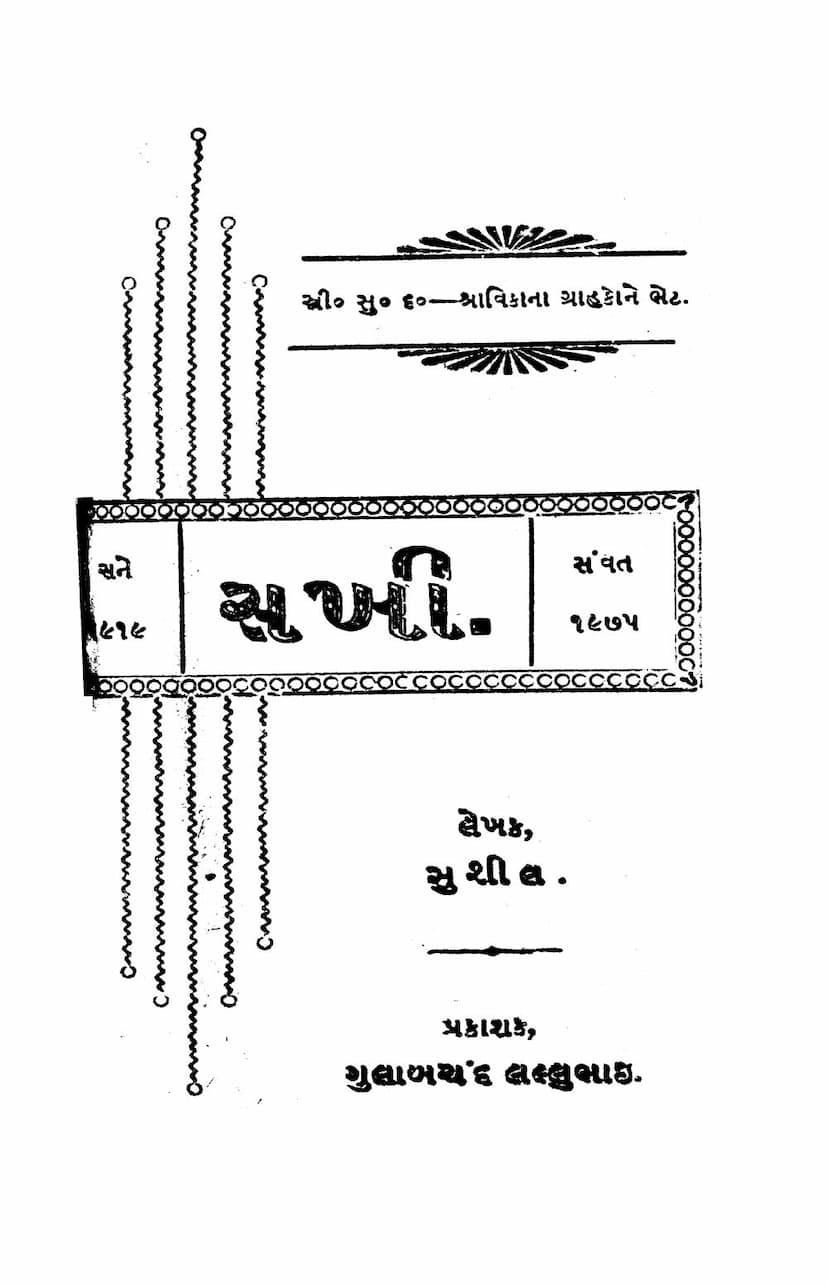Sakhi
Added to library: September 2, 2025

Summary
The book "Sakhi" by Sushil, published by Stree Sukh Darpan Shravika Office in Bhavnagar, is a collection of letters or essays addressed to a female friend ("Sakhi"). The author, Sushil, aims to impart guidance and wisdom to women on various aspects of life, focusing on self-empowerment, domestic responsibilities, character development, and health.
The preface highlights the author's dedication to women's upliftment and aims to provide practical guidance through this publication. The author expresses the desire for the book to be read widely and contribute to the improvement of women's lives. The book is dedicated to the author's late mother, Kasturba, and nephew, Bachu, as a memorial.
The main content of the book is structured into several sections:
-
Atmabhaan (Self-Awareness): This section emphasizes the importance of women recognizing their self-worth and taking initiative for their own progress. The author stresses that external help will not be effective unless women themselves strive for self-improvement, knowledge, and righteousness. It encourages self-reliance and warns against depending on others for happiness and progress.
-
Grihrajya (Household Governance): This part focuses on women's role as the "queen" of their household. It highlights that women are the creators and sustainers of society, influencing family and future generations through their actions and character. The author uses illustrative examples to show how a woman's influence shapes the home and society, advocating for women to embrace their responsibilities with diligence and wisdom.
-
Charitra ane Saundarya (Character and Beauty): Here, the author discusses the importance of inner strength, character, and mental purity over superficial beauty. While acknowledging the role of health, the emphasis is on mental and spiritual well-being. The author criticizes the Western obsession with external beauty and promotes the idea that true beauty emanates from good character, health, and natural living.
-
Aarogya (Health): This section offers practical advice on maintaining good health. It discusses the importance of natural living, clean environment, balanced diet, and mindful consumption. The author cautions against unhealthy habits, excessive use of spices, consuming stale food, and indulging in sensory pleasures without restraint. It also touches upon the role of mental strength, adherence to natural laws, and avoiding hereditary diseases.
-
Santanshiksha (Child Education): This part focuses on the crucial role of mothers in shaping their children's character and education. It emphasizes that the home is the first school and the mother is the primary teacher. The author highlights the impact of a mother's example and guidance in instilling virtues in children from an early age. It advises against resorting to fear tactics to discipline children and encourages fostering their curiosity and intellectual development through reasoned explanations and a nurturing environment.
-
Jeevo no Saathi (Companion for Life - related to childbirth): Although not fully elaborated in the provided text, this section seems to introduce a highly useful book on childbirth, originally written by a Bengali scholar. The author notes its popularity and its practical home remedies that can reduce infant mortality and improve maternal health.
Throughout the book, Sushil advocates for women's intellectual, moral, and spiritual growth, urging them to be self-reliant, responsible homemakers, and virtuous individuals. The underlying message is that empowered and well-educated women are essential for the progress of individuals, families, and society as a whole. The author frequently uses metaphors and anecdotes to convey her points effectively, making the text engaging and informative.